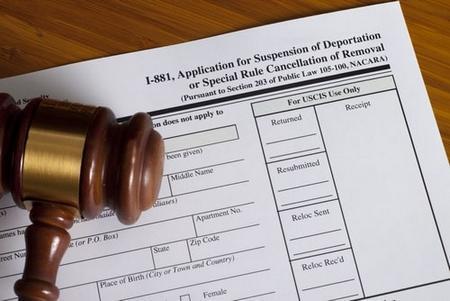Recent Blog Posts
What Happens When Someone is Charged with Contempt of Court for Violating a Divorce Order in Illinois?
 Divorce orders are complex and legally binding documents. Divorced individuals in Illinois may not necessarily like the contents of their divorce order, but without seeking a modification in court, the order must be followed nonetheless. Many parts of the divorce order have an impact on a divorcee’s everyday life, especially if she shares children with her ex. It is important to understand that violating any part of a divorce order carries legal consequences.
Divorce orders are complex and legally binding documents. Divorced individuals in Illinois may not necessarily like the contents of their divorce order, but without seeking a modification in court, the order must be followed nonetheless. Many parts of the divorce order have an impact on a divorcee’s everyday life, especially if she shares children with her ex. It is important to understand that violating any part of a divorce order carries legal consequences.
What Happens if I Have Been Charged with Contempt of Court?
Charges for contempt of court usually follow a petition by one former spouse against the other for enforcing a part of the divorce order that a spouse has allegedly broken. Not paying child support or spousal maintenance, violating the terms of a parenting agreement, or failing to make payments on court-ordered division of debt could all lead a person to file such a petition.
When Can Immigrants Receive Waivers of Inadmissibility?
 For immigrants who are seeking entry to the United States or those who currently live in the U.S. and wish to obtain an adjustment of status and become lawful permanent residents, there are certain issues that may affect this process. U.S. immigration laws include multiple “grounds for inadmissibility” that may affect an immigrant’s legal status or prevent them from entering or remaining in the United States. However, there are some cases where immigrants may be able to obtain waivers of inadmissibility. By understanding when these waivers may be available and the procedures to follow when applying for a waiver, immigrants and their family members can make sure they are taking the correct steps to overcome any issues that may affect the immigration process.
For immigrants who are seeking entry to the United States or those who currently live in the U.S. and wish to obtain an adjustment of status and become lawful permanent residents, there are certain issues that may affect this process. U.S. immigration laws include multiple “grounds for inadmissibility” that may affect an immigrant’s legal status or prevent them from entering or remaining in the United States. However, there are some cases where immigrants may be able to obtain waivers of inadmissibility. By understanding when these waivers may be available and the procedures to follow when applying for a waiver, immigrants and their family members can make sure they are taking the correct steps to overcome any issues that may affect the immigration process.
Waivers for Different Grounds of Inadmissibility
While immigration laws may prevent a person from being legally admitted to the United States in certain situations, there are some cases where exceptions may apply. Waivers may be available in situations where a person is inadmissible due to issues such as:
Could I Have a Case of Medical Malpractice if My Baby’s Skull was Fractured During Childbirth?
 Skull fractures are serious injuries for any age, but they are particularly dangerous for infants. It is unclear exactly how common infant skull fractures are because they are not always easy to recognize, but some believe that they may be much more common than the available data suggest.
Skull fractures are serious injuries for any age, but they are particularly dangerous for infants. It is unclear exactly how common infant skull fractures are because they are not always easy to recognize, but some believe that they may be much more common than the available data suggest.
Infant skull fractures can occur in many ways during childbirth. Although some skull fractures can occur spontaneously during delivery, most of these injuries happen because of excessive force, improper fetal monitoring, or another kind of medical malpractice. If you are worried that your healthcare provider caused your infant to suffer a birth injury because of improper care, an experienced birth injuries attorney may be able to help.
Common Causes of Infant Skull Fractures During Labor and Delivery
Skull fractures are uncommon in uncomplicated labors, but medical personnel should be alert and ready to respond to signs that an infant is at risk of injuries. The most common causes of infant skull fractures include:
High-Income Parents and Child Support in Illinois: Three Things You Should Know
 When parents of children under 18 years old get divorced, child support payments are almost always involved. Under Illinois law, both parents are responsible for providing their children with reliable financial support and, using both parents’ incomes, Illinois has a formula to help determine roughly what child support payments will be.
When parents of children under 18 years old get divorced, child support payments are almost always involved. Under Illinois law, both parents are responsible for providing their children with reliable financial support and, using both parents’ incomes, Illinois has a formula to help determine roughly what child support payments will be.
However, many parents in Illinois have income levels that far exceed the parameters laid out by the Income Shares formula. When this happens, it can be much harder to predict child support payments. If you or your spouse is a high earner, here are three things to know about child support in Illinois.
The Court Must Approve Any Child Support Agreements
In a perfect world, divorcing parents would agree on everything and the divorce process would be smooth and uncontested. In the real world, this is rarely the case - especially when large amounts of money are at stake. Sometimes parents can agree on a child support payment amount. However, if they do so, they must get the child support arrangement approved by the court. Under Illinois law, a parent may not forfeit his or her right to child support from the other parent. Child support payments are for the child’s benefit. The court will want to ensure that the payment amount will reasonably meet the child’s financial needs.
UPDATE: The Legal Ins and Outs of Marrying a Foreigner

Originally published: December 9, 2014 -- Updated: December 27, 2021
UPDATE: If you are planning to get married to a person who is a citizen of a foreign country, you should be sure to understand the steps that you will need to follow to ensure that your partner will be able to reside in the United States legally. By applying for a fiancé visa, you can bring your future spouse to live with you, and after you get married, your partner will be able to maintain permanent residence in the U.S.
A U.S. citizen can apply for a K-1 fiancé(e) visa for an intended spouse who is living in another country. The citizen will file a Petition for Alien Fiancé(e) (Form I-129F) with U.S. Citizenship and Immigration Services (USCIS). This type of nonimmigrant visa will allow the fiancé(e) to enter the United States. After receiving a visa and coming to the U.S., the foreign fiancé(e) must get married to the U.S. citizen within 90 days. If they do not get married within this time frame, the foreign fiancé(e) will be required to leave the United States. After getting married, the foreign spouse can apply for adjustment of status, and they will receive a conditional Green Card that will be valid for two years. Before their Green Card expires, they will need to apply to remove the conditions on permanent residence, after which they will receive a permanent Green Card.
How Can I Prove Nursing Home Injuries with Evidence?
 People who have loved ones in Illinois nursing homes frequently suspect that something is amiss with the standard of care the nursing home provides, but suspicions and accusations are usually not enough to make a nursing home take action. Yet residents have a legal right to receive an appropriate standard of care; if a facility is not clean, safe, and residents are not given the right assistance with their daily life, what can you do? Worse yet, if you fear your loved one is being abused or neglected, how can you take immediate action to keep them safe?
People who have loved ones in Illinois nursing homes frequently suspect that something is amiss with the standard of care the nursing home provides, but suspicions and accusations are usually not enough to make a nursing home take action. Yet residents have a legal right to receive an appropriate standard of care; if a facility is not clean, safe, and residents are not given the right assistance with their daily life, what can you do? Worse yet, if you fear your loved one is being abused or neglected, how can you take immediate action to keep them safe?
When residents are emotionally abused, seriously injured, or killed because a nursing home neglects or abuses residents, you may want to file a lawsuit against the nursing home. To do so, however, you will need to have evidence to support your claims. Here, we will examine common kinds of evidence that can be used to show a nursing home acted wrongly against your loved one.
Can I Sue If I Was Injured From a Blown-Out Truck Tire in Illinois?
 Trucking companies have a responsibility to ensure their vehicles do not pose a safety threat to others. Unfortunately, we have all seen pieces of truck tires littering the road. Those unlucky enough to be next to a truck when a tire blows out face a high risk of losing control of their vehicle, and shredded tires flying across the highway can hit vehicles and cause serious damage. Although it is not entirely possible to mitigate the risk of trucking accidents due to blown-out tires, preventing most blowout accidents is possible with standard safety measures. When truck companies follow poor trucking maintenance protocol, victims of tire blowout accidents may be able to pursue justice.
Trucking companies have a responsibility to ensure their vehicles do not pose a safety threat to others. Unfortunately, we have all seen pieces of truck tires littering the road. Those unlucky enough to be next to a truck when a tire blows out face a high risk of losing control of their vehicle, and shredded tires flying across the highway can hit vehicles and cause serious damage. Although it is not entirely possible to mitigate the risk of trucking accidents due to blown-out tires, preventing most blowout accidents is possible with standard safety measures. When truck companies follow poor trucking maintenance protocol, victims of tire blowout accidents may be able to pursue justice.
Are Trucking Companies Responsible For Blown-Out Tires?
The Federal Motor Carrier Safety Administration requires trucking companies to maintain their vehicles. Large commercial vehicles like dump trucks, tow trucks, and 18-wheel tractor-trailers can pose serious hazards to others if poor maintenance leads to trucking regulation violations. Trucking companies and their employees must ensure the following conditions are true of their tires before trucks are allowed on the road:
Five Things Illinois Courts Consider During Custody Cases
 Creating a new parenting agreement or modifying an old one can be a difficult task that requires parents to set realistic expectations and understand how Illinois family law works. In Illinois, child custody is divided into two parts: allocation of parental responsibilities, meaning important decision-making authority, and parenting time, meaning the time children physically or electronically spend with each parent.
Creating a new parenting agreement or modifying an old one can be a difficult task that requires parents to set realistic expectations and understand how Illinois family law works. In Illinois, child custody is divided into two parts: allocation of parental responsibilities, meaning important decision-making authority, and parenting time, meaning the time children physically or electronically spend with each parent.
Although parents are encouraged to create a parenting plan that they both agree on, if they are unable to cooperate, courts may intervene. If you are facing a disputed custody case in Illinois, here are five of the most important factors Illinois family courts will look at.
The Child’s Best Interests
The primary consideration of Illinois family courts is whether any particular arrangement would be in the best interests of the child. Although this is a somewhat vague term, it is a benchmark against which all other considerations can be tested. Even if a child says he or she wishes to spend all their time with one parent, the courts must consider the child’s maturity and relevant psychological research to determine whether such a request would be in the child’s best long-term interests.
When Can Immigrants Receive Cancellation of Removal Due to Hardship?
 For immigrants to the United States who are undocumented or who do not have the protections provided by a Green Card, the threat of deportation is ever-present. When a foreign-born person and their family members have established lives in the U.S., the possibility that they may be required to uproot themselves and move to another country can be very troubling. Fortunately, those who are involved in deportation proceedings may have a number of options for defense, including applying for cancellation of removal. In many cases, these applications will be based on claims that a deportation will cause hardship for a person’s family members. By understanding what constitutes hardship and how to demonstrate that hardship will occur, a family can make sure they are taking the correct steps to defend against deportation.
For immigrants to the United States who are undocumented or who do not have the protections provided by a Green Card, the threat of deportation is ever-present. When a foreign-born person and their family members have established lives in the U.S., the possibility that they may be required to uproot themselves and move to another country can be very troubling. Fortunately, those who are involved in deportation proceedings may have a number of options for defense, including applying for cancellation of removal. In many cases, these applications will be based on claims that a deportation will cause hardship for a person’s family members. By understanding what constitutes hardship and how to demonstrate that hardship will occur, a family can make sure they are taking the correct steps to defend against deportation.
Proving Hardship in Deportation Cases
Immigrants may qualify for cancellation of removal as permanent residents if they have been lawful permanent residents for 5 years or more, have lived in the United States for a minimum of seven years, and they do not have any convictions for aggravated felonies. Cancellation of removal is also available for Immigrants who are not lawful permanent residents. In these cases, a person must have been living in the United States for a minimum of 10 years, they must not have been convicted of crimes involving moral turpitude or other types of crimes that would jeopardize their immigration status, and they demonstrate good moral character. In addition to these requirements, a non-permanent resident will need to show that their deportation would cause hardship for one or more family members who are lawful permanent residents or U.S. citizens.
Four Tips for Fathers in Illinois Preparing For a Custody Hearing
 Fathers facing custody hearings in Illinois are often nervous - and understandably so. When you are asking the court to spend time with your children, it can feel like so much is at stake. Whether your hearing is to determine parenting time or allocation of parental responsibilities, whether it takes place during divorce or a parenting agreement modification, here are four tips that can help you prepare.
Fathers facing custody hearings in Illinois are often nervous - and understandably so. When you are asking the court to spend time with your children, it can feel like so much is at stake. Whether your hearing is to determine parenting time or allocation of parental responsibilities, whether it takes place during divorce or a parenting agreement modification, here are four tips that can help you prepare.
Present Your Best Self
Although the old adage telling us not to judge a book by its cover may be helpful in some circumstances, a family court is not the place to push boundaries. Play it safe and look sharp: wear clean clothes, style your hair neatly, and demonstrate with your appearance that you care about the outcome of this case.
Prepare Documents and Witnesses
Necessary documents that prove your relationship with your child, like phone logs, report cards, and photographs, should be gathered and organized well before your hearing. They should be easily accessible so you are not left scrambling on the morning of the hearing - or worse, during the hearing itself. Furthermore, if you are calling any witnesses to testify, you should compile an easy-to-read witness list with the contact information of each individual.
 English,
English,
 Spanish,
Spanish,
 Polish,
Polish,
 Urdu
Urdu












 Make a Payment
Make a Payment



